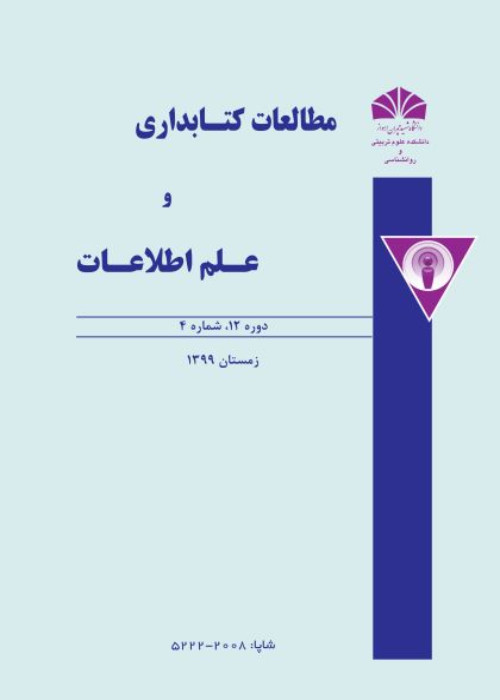Designing a Model for the Impact of Quantum Skills on Knowledge Engineering in Iran Public Libraries Foundation
In the last two decades, the world of public and private organizations and institutions has undergone significant changes. Rapid changes in technology, globalization, increased service quality, and a shortage of skilled and expert human resources has created a very intense competitive environment among organizations. Succeeding in such a competitive environment requires the use of new resources and methods. For this reason, researchers have proposed new knowledge-based approaches in which knowledge is considered a critical resource and perhaps the only source of the organization in creating a sustainable competitive advantage. On the other hand, in today's complex and constantly changing world, traditional methods do not respond to the massive flood of information and knowledge, so if an organization is looking for good governance, managers and employees need to equip themselves with the latest skills that the principles of quantum physics have raised a set of the skills in this area. Quantum skills refer to a set of competencies that lead to increased effectiveness and organizational development, and the resolution of undesirable conflicts. The quantum skills are not intended to replace traditional skills but to improve them. A quantum perspective generally enhances capabilities, empowerments, and more profound effectiveness; these skills are the framework for new management skills. Due to the rapid and comprehensive changes in information technology and the creation of databases, the range of activities and services of libraries and information centers are affected continuously. These changes are effective in libraries and satisfy users, and meet their demands. Motivation in human resources for knowledge and knowledge engineering, acquisition of new approaches, and quantum skills is essential. It highlights the need to identify the dimensions of quantum skills and knowledge engineering. Therefore, the present study was conducted to design a model for the impact of quantum skills on knowledge engineering in the Iran public libraries Foundation.
Regarding the purpose, the present study pursued a functional goal, and in terms of a mixed approach, it was a combination of qualitative and quantitative methods. To analyze the data, the content analysis method was used. The qualitative part of the research was directed utilizing a semi-structured interview with 15 professors of information science and information technology departments and managers of public libraries. Purposeful sampling was used to select individuals, and also content validity was conducted to ensure the validity of the interviews. The researcher provided the interview questions and submitted them to the supervisor, the consultant, and three executive experts, and after considering their corrective opinions, the questions were finalized. In the quantitative part of the research, the survey method was used. The statistical population of this section was all librarians, officials of libraries, staff, and managers of Iran Public Libraries Foundation numbering 6171 people, which was determined by Cochran's formula 362 people as the total sample size. Due to an error of 0.05% and probability of non-return of all questionnaires, 375 were distributed, but all questionnaires were collected and analyzed. The sampling method was quantitative and proportionate stratified based on the total number of employees in the provinces. The output of the qualitative part was in the form of two questionnaires, including 22 items of quantum skills and 69 items of knowledge engineering, analyzed based on a 5-point Likert scale. The validity and reliability of the questionnaires were assessed using confirmatory factor analysis in PLS software.
Based on the texts analysis, exploratory interview, and research team refinements, for quantum skills, three dimensions of creative thinking, systems thinking, and contingency thinking and positioning were found. On the other hand, for knowledge engineering, five dimensions of knowledge or information quality and appropriateness of knowledge engineering output, knowledge engineering, experiments were identified to validate the rules of knowledge organization, knowledge documentation, and knowledge maintenance. Also, the findings of structural equation analysis show the significant effect of quantum skills on knowledge engineering in the Iran Public Libraries Foundation.
Quantum skills seek to discover knowledge and creative solutions to the development of the organization. Employees with high quantum skills have made more efforts to identify opportunities and take advantage of them. They are always looking for new knowledge and ideas to achieve their organizational visions and are willing to accept change to find solutions and information tools to be effective. In the affairs of the organization, these factors will lead to the development of knowledge engineering.
- حق عضویت دریافتی صرف حمایت از نشریات عضو و نگهداری، تکمیل و توسعه مگیران میشود.
- پرداخت حق اشتراک و دانلود مقالات اجازه بازنشر آن در سایر رسانههای چاپی و دیجیتال را به کاربر نمیدهد.



